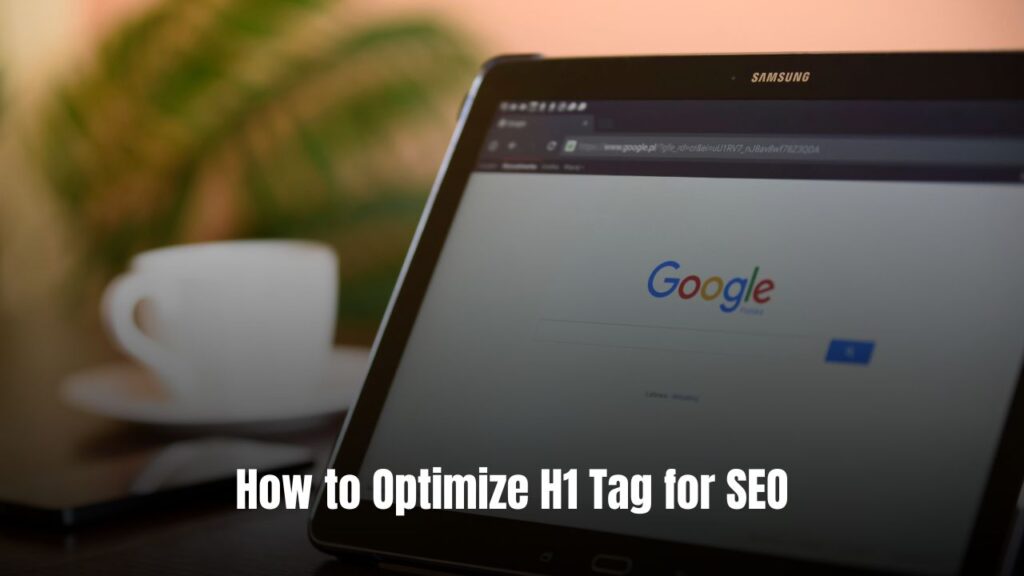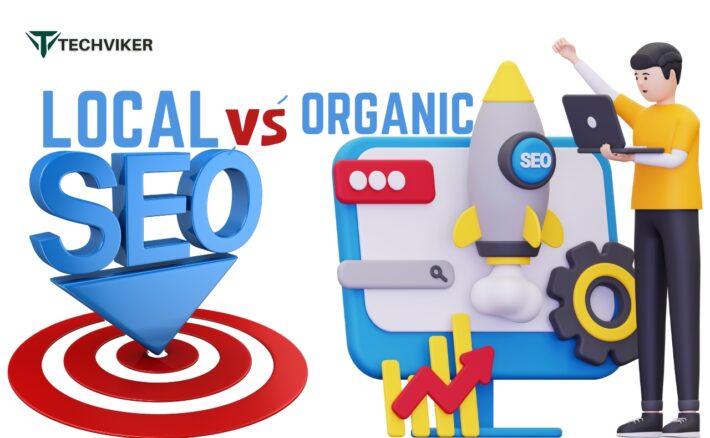Will H1 automatically rank first in SEO?

If you are an SEO professional or website manager, then you probably must have asked yourself regarding the various components of SEO and how they play in ranking your page more highly. One question most people ask is: “Will H1 automatically rank first in SEO?” H1 is usually regarded as one of the most vital HTML elements on a webpage, and it commonly functions as the most critical heading of a webpage. Many believe that simply using the H1 tag correctly will lead to better rankings on search engines, but does it really guarantee a top spot? In this article, we’ll explore whether the H1 tag can indeed automatically propel a page to the first rank in SEO or if other factors come into play.
What is the H1 Tag and Why is it Important?
Before coming into the real question, that is whether “Will H1 automatically rank first in SEO?”, a little primer is in order on understanding what the H1 tag does and is, and what is its function in the world of SEO. An H1 tag is to describe the most important heading one might use on a webpage; generally speaking, it lives at the top of any given content block and should ideally summarize the central topic or theme of a page.
The H1 tag is an element search engines look to for one of the earliest ideas about what the page is talking about. Generally, keywords that relate to the page itself are used in the H1 tag. This is an overall SEO best practice. The presence of these keywords can potentially improve the relevance of the page for specific search queries. However, “Will H1 automatically rank first in SEO?” simply by using it effectively? Let’s explore.
Does an H1 Tag Guarantee High Rankings Automatically?
The short answer is no. H1 is absolutely important, but only as one of the many, many ranking factors that govern the positioning of a page on the search results. There is more than one ranking factor, and the search engines themselves have an incredibly complex algorithm which evaluates content, relevance, user interaction, and general quality of content on the website.
While the H1 tag does send a clear signal to search engines about the topic of the page, a well-optimized H1 tag alone will not make it rank first. Recognize that SEO is a multidisciplinary field, and no one element—whether it’s the H1 tag or something else—will automatically rank a page first. Let’s look at why.
SEO Factors Beyond the H1 Tag
To fully answer the question “Will H1 automatically rank first in SEO?”, there are a number of factors that search engines look into before making the ranking decisions. Some of the few elements playing a much bigger role in the process include:
1. Quality of content
Search engines favor high-quality, comprehensive, and engaging content. Even if your H1 tag is perfectly optimized with the right keywords, the content itself must also deliver value to the user. Content that is informative, well-written, and answers user queries is far more likely to rank well. A page with a strong H1 tag but weak content is unlikely to perform well.
2. Backlinks
Backlinks remain the most powerful ranking signal. A page that is able to gain a large number of quality backlinks from authoritative sources will rank higher, irrespective of whether it has an ideal H1 tag or not. Search engines use backlinks as a measure of a page’s authority and relevance.
3. User Experience (UX)
User experience plays a crucial role in SEO. For instance, Google looks at such metrics as CTR, time spent on the page, bounce rate, and how easy it is for users to navigate the website. A good H1 tag that attracts users is of little use if the user experience is bad. So, “Will H1 automatically rank first in SEO? If the page has a terrible user experience? No”.
4. Page Loading Speed
Search engines give priority to pages with high page loading speed. Even a slow page, though having the best optimized H1 tag, might lose rank. Page speed, with Google’s new feature Core Web Vitals included in rankings, becomes an absolute necessity more than ever.
5. Mobile Optimization
When there is mobile traffic as in majority usage on the Internet, mobile optimization has become a must for good rankings. Mobile first indexing is used by Google wherein most use their cellphones to evaluate rankings using a mobile version of the webpage. Pages responsive to screen sizes and kinds of devices are more likely to be on a high ranking than those that do not optimize, with all being given H1 tags.
Why Just Having an H1 Tag Won’t Ensure First-Page Rankings
Having discussed what actually determines rankings in SEO, let’s go back to the question that brought you here: “Will H1 automatically rank first in SEO?” The simple truth is, having H1 tag alone will never be a magic that magically puts your page at first rank.
Here are a few reasons why the H1 tag doesn’t automatically guarantee a top ranking:
1. Algorithm Complexity
Google search algorithm, as well as that of other search engines, considers hundreds of ranking signals. The H1 tag is important but just one small piece of the puzzle. There are many other factors evaluated by search engines, including content depth, site authority, and user behavior. Thus, even with a great optimization of an H1 tag, you still won’t rank first if all other SEO factors are not taken into account.
2. Search Intent
Matching search intent is a basic principle of SEO. Users tend to search for content that answers their specific questions or addresses their needs. If your H1 tag includes relevant keywords but the content does not match what the user is seeking, it won’t result in a first-page ranking. Content quality and how well it aligns with search intent is critical in determining ranking success.
3. Competition
SEO is extremely competitive, especially in niche fields. If your competitors have quality content, more backlinks, and a better user experience, they may outrank your page even with the perfect H1 tag. “Will H1 automatically rank first in SEO?” in an extremely competitive field? No—it is going to be dwarfed by other factors such as domain authority and competition.
How to Optimize H1 Tag for SEO

Although the H1 tag does not magically position your page first on an SEO, it may certainly aid in boosting your ranking. Use the following to optimize your H1 tag for better rankings on SEO:
1. Use Relevant Keywords
Include the main keyword in the H1 tag, but avoid keyword stuffing. Your H1 should be clear, concise, and naturally incorporate the keyword in a way that makes sense for both users and search engines.
2. Align with Search Intent
Ensure that your H1 reflects the search intent of your users. By addressing the core need of the user in your H1 tag, you will let the search engines know your content is relevant to what a user is searching for.
3. Engage it
A well-written H1 tag can improve the CTR, which is a good sign for SEO. Make sure your H1 is not only informative but also engaging to users.
4. One H1 Tag
Although HTML5 supports multiple H1 tags, it is generally recommended to use only one per page. This ensures that the page’s main topic is clearly understood and confusion is avoided both by search engines and users.
5. Comprehensive SEO
This doesn’t mean focusing on the H1 alone. There is much to SEO beyond this. Good quality content, mobile friendliness, and strong technical SEO form a holistic SEO strategy, which proves to be much more successful than targeting the H1 tag in isolation.
Conclusion
We’ll know that H1 automatically ranks first in SEO, provided the information is understood that a single on-page SEO element is the H1 tag; however, it’s never going to rank automatically in first position. SEO is such a process, which requires attention towards lots of factors, content quality, backlinks, user engagement, and technical SEO. While the H1 tag is critical for sending the signal to search engines about what topic the page pertains to, ranking first on SERPs demands a more holistic approach to SEO, addressing all ranking factors relevant to the page.
Conclusion The H1 tag is integral to SEO, but focusing on a holistic SEO approach is important. The use of an optimized H1 tag and other vital components of SEO will increase your chance of ranking higher, but none of these elements can work alone to push you up to the top of a given search. “Will H1 rank me first in SEO?” Absolutely not, but correct use of H1 has the most important role to enable search engines to recognize your content’s relevance and quality.

